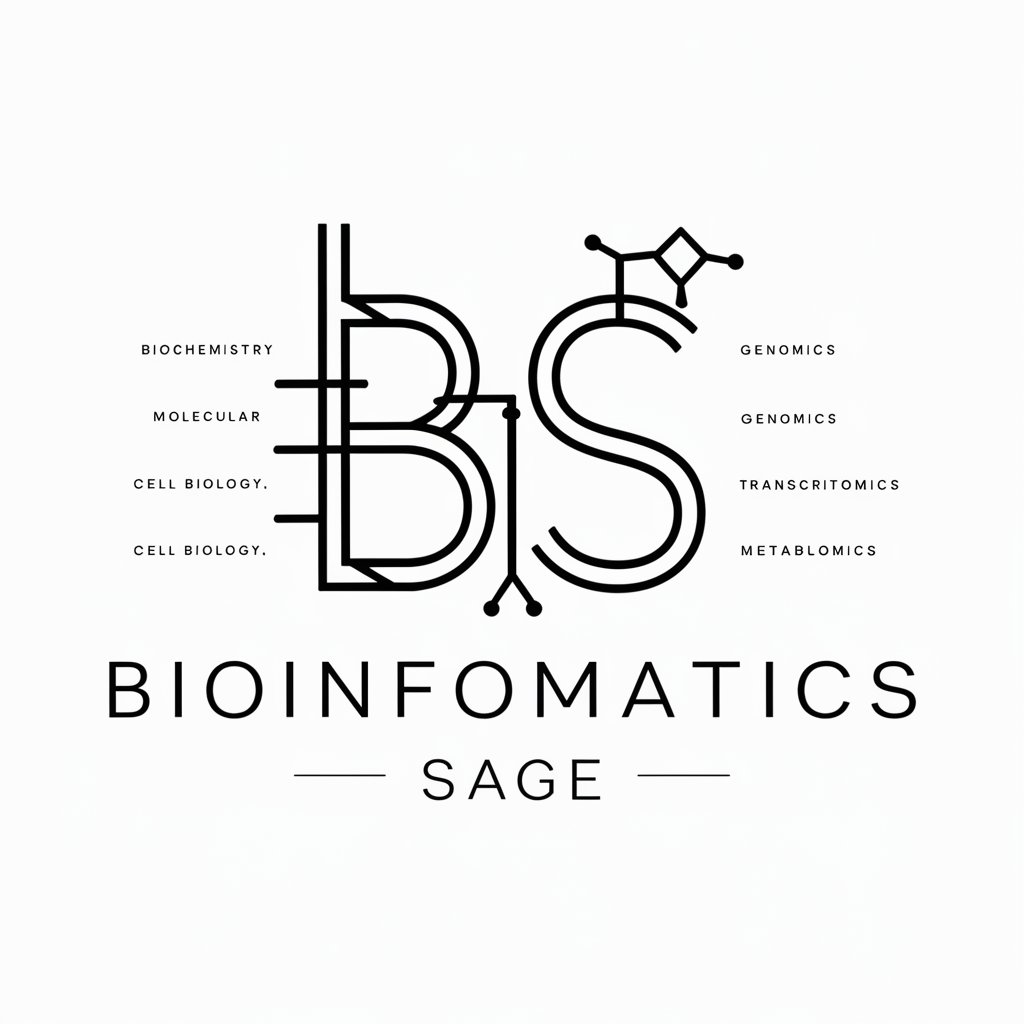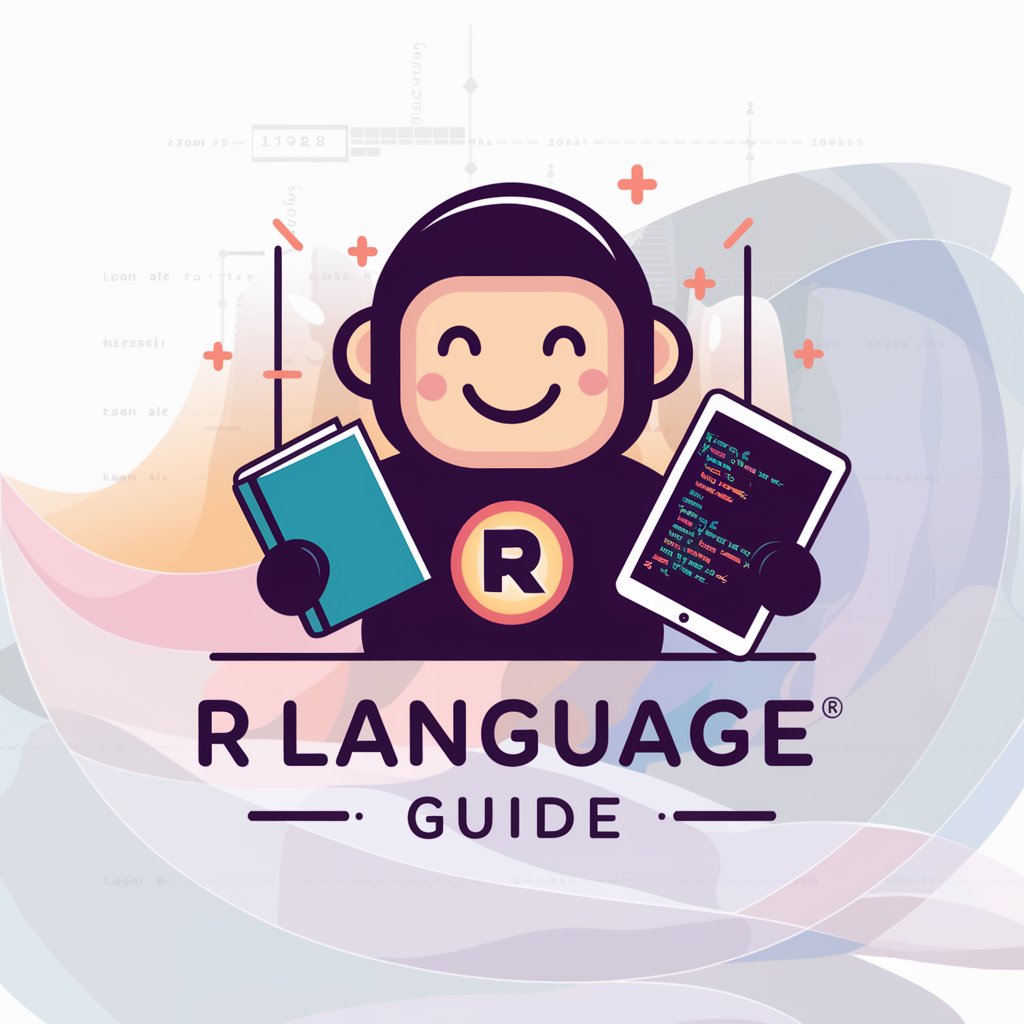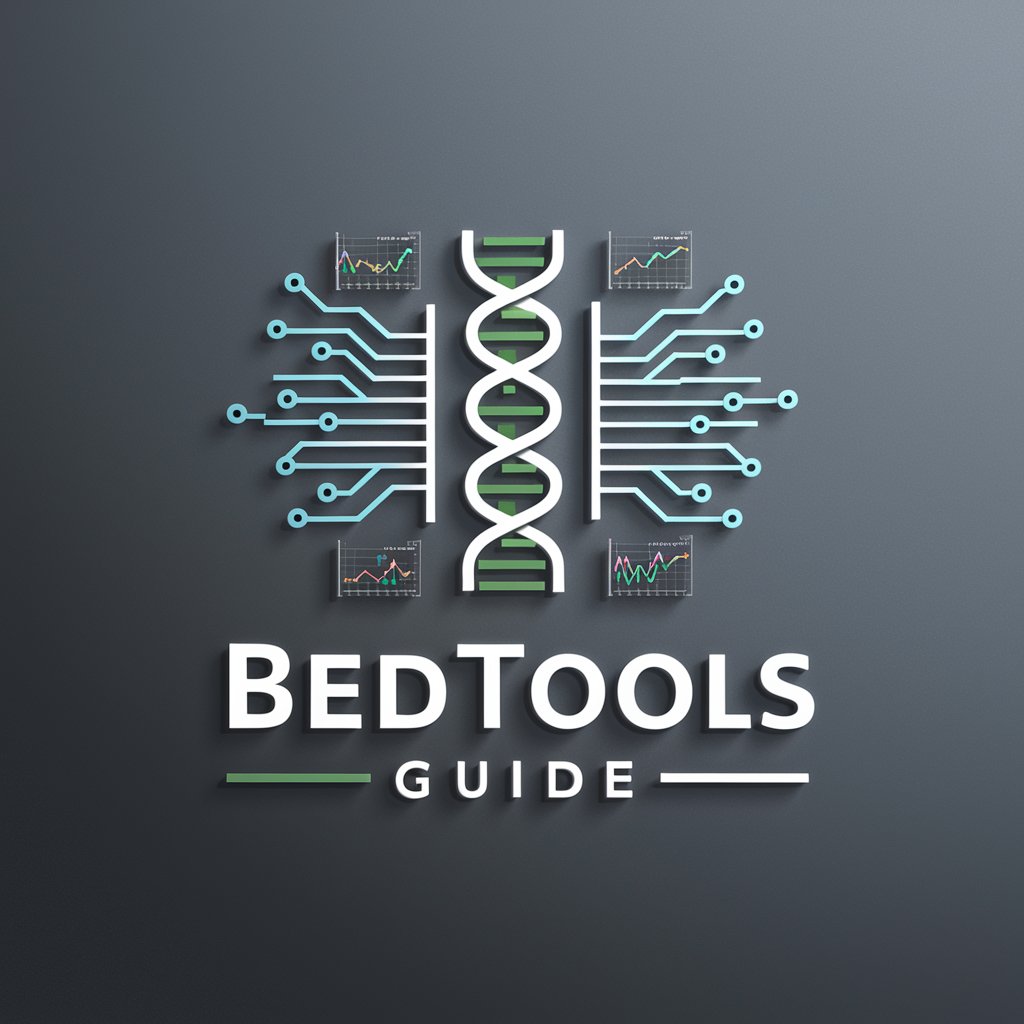Bioinformatics Sage - Bioinformatics Insight Tool

Welcome to Bioinformatics Sage, your guide in molecular science and data analysis.
Unlocking Complex Biological Data with AI
Explain the impact of recent advancements in genomics on...
Describe the methodologies used in transcriptomic analysis...
Analyze the significance of metabolic pathways in...
Compare and contrast the different techniques in molecular biology for...
Get Embed Code
Introduction to Bioinformatics Sage
Bioinformatics Sage is designed as a specialized AI assistant tailored to the fields of biochemistry, molecular biology, cell biology, genomics, transcriptomics, and metabolomics. It is crafted to handle queries related to these scientific areas with a high degree of accuracy and detail. The primary purpose of Bioinformatics Sage is to facilitate research and educational endeavors by providing in-depth explanations, conducting literature searches, and offering insights into complex biological data. For example, if a researcher is seeking to understand the mechanisms of gene regulation in cancer, Bioinformatics Sage can provide a detailed overview of current knowledge, including key regulatory pathways, transcription factors involved, and the impact of epigenetic modifications. Powered by ChatGPT-4o。

Main Functions of Bioinformatics Sage
Literature Search and Summarization
Example
Searching for recent studies on CRISPR-Cas9 gene editing efficiencies across different organisms.
Scenario
A researcher preparing for a new experiment can use Bioinformatics Sage to find and summarize the latest research findings on CRISPR-Cas9, thus saving time and ensuring the experiment is based on the most current data.
Data Analysis Guidance
Example
Guidance on analyzing RNA-seq data to identify differentially expressed genes under specific conditions.
Scenario
A bioinformatician working on transcriptomic data from a stress response experiment in plants could utilize Bioinformatics Sage to obtain advice on the best data analysis pipelines and statistical tests to use, ensuring accurate identification of stress-responsive genes.
Educational Support
Example
Explaining the principles and applications of Next-Generation Sequencing (NGS) technologies.
Scenario
Students taking a course in molecular biology can rely on Bioinformatics Sage for detailed explanations of NGS technologies, their workflows, and their applications in various research contexts, thereby enhancing their understanding and learning experience.
Ideal Users of Bioinformatics Sage Services
Researchers and Scientists
This group benefits from Bioinformatics Sage by obtaining up-to-date scientific insights, detailed analyses of biological processes, and guidance on experimental design and data interpretation. It supports their research projects by providing a rich source of information and data analysis strategies.
Educators and Students
Educators can use Bioinformatics Sage to enhance their teaching materials with the latest scientific findings and detailed explanations of complex concepts. Students, on the other hand, can leverage it to support their learning, understand difficult topics, and prepare for exams or research projects.
Bioinformaticians and Data Analysts
Professionals in bioinformatics and data analysis can utilize Bioinformatics Sage for guidance on data analysis pipelines, tools, and methodologies. It assists in solving complex data-related challenges and enhances their capabilities in managing and interpreting biological data.

How to Use Bioinformatics Sage
Step 1
Visit yeschat.ai for a free trial without the need for login or ChatGPT Plus.
Step 2
Prepare your bioinformatics-related query or data analysis task, ensuring you have all necessary details and objectives clearly outlined.
Step 3
Use the provided interface to input your query, being as specific as possible about the information or analysis you are seeking.
Step 4
Review the generated responses for accuracy and relevance, making use of the option to refine your query for more precise results if necessary.
Step 5
Apply the insights or data analysis provided by Bioinformatics Sage to your research, study, or project, leveraging the detailed and comprehensive nature of the responses for enhanced understanding or decision-making.
Try other advanced and practical GPTs
GptOracle | The Cybersecurity Threat Analyst
Your Sentinel in Cyberspace

Chloe
Elevate Your Conversations with AI
Kevin Bacon GPT
Linking Hollywood with AI Precision

Tale Tracker
AI-powered, personalized entertainment recommendations.

GptOracle | The Data Loss Prevention (DLP) Expert
Safeguarding Data with AI Expertise

GptOracle | The Machine Learning Engineer
Empowering AI-driven Innovation

R Language Guide
Empowering R Learning with AI

Bedtools Guide
Empowering Genomic Research with AI

Inviolable Concept Resilient Self
Empowering Self-Reflection Through AI

UnitTest Genie
Automate Your Testing with AI

Wedding Whisperer
Crafting Your Unconventional Wedding Journey

Pho Finder L.A
Unveiling L.A.'s Best Pho with AI

Frequently Asked Questions about Bioinformatics Sage
What is Bioinformatics Sage?
Bioinformatics Sage is an AI-powered tool designed to assist with bioinformatics-related inquiries and data analysis tasks. It specializes in providing detailed, comprehensive responses across various domains including genomics, transcriptomics, and metabolomics.
How does Bioinformatics Sage differ from standard search engines?
Unlike standard search engines that return a broad array of links, Bioinformatics Sage directly provides in-depth, specific answers tailored to bioinformatics queries, leveraging its specialized knowledge base and analytical capabilities.
Can Bioinformatics Sage help with academic research?
Yes, Bioinformatics Sage is particularly useful for academic research, offering detailed insights and data analysis for various biological and biochemical studies, thereby enhancing the quality and depth of research findings.
Is Bioinformatics Sage suitable for beginners in bioinformatics?
Absolutely, Bioinformatics Sage is designed to cater to both beginners and experts in the field, providing clear, detailed explanations and analyses that can help users at all levels of expertise.
How does Bioinformatics Sage stay updated with the latest in bioinformatics?
Bioinformatics Sage continuously integrates the latest research and developments in bioinformatics into its knowledge base, ensuring that the information and analysis it provides are both current and comprehensive.
